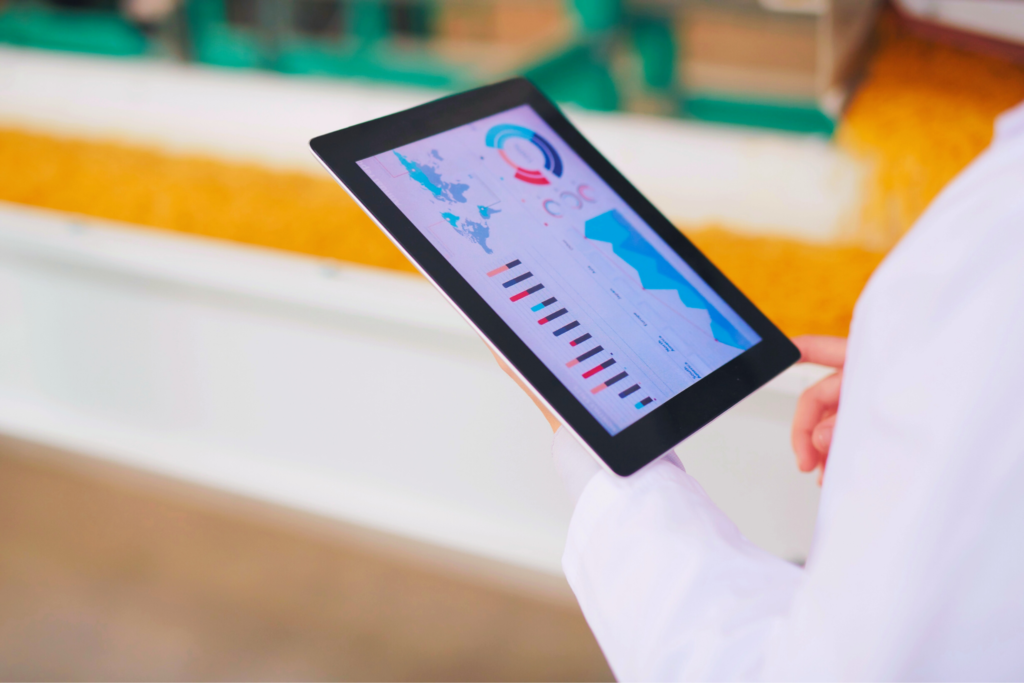7 Ways AI is Transforming Procurement in Healthcare
The field of artificial intelligence (AI) has made great strides in recent years, with the technology making its way into industries as diverse as manufacturing and hospitality. The next frontier is procurement and supply chain management in the Healthcare Industry, with AI set to transform the way companies source their materials and streamline the operations of their equipment. Some experts predict that within five years AI will be responsible for over $300 billion in annual savings, for the healthcare industry alone.

1) Procurement Processes
Just a few years ago, procurement and sourcing teams were mostly focused on negotiating contracts and maintaining relationships with suppliers. Today, these professionals are tasked with improving both their organization’s procurement processes and their vendor networks. They are using machine learning and artificial intelligence to streamline processes and improve outcomes. For example, AI technology is being used to analyze transaction data, so patterns can quickly be identified, trends in spending can be monitored and more informed decisions about future purchases can be made. Other professionals rely on machine learning algorithms to understand how procurement team members view different vendors. Armed with that knowledge, they can ensure that purchasing managers get more personalized recommendations when they buy new products or services.

2) Real-Time Decision Making
Machines can assist humans in making better decisions. Supply chains are rife with variables, risks, and uncertainties—that’s what makes them exciting. In situations where there are multiple factors to consider and limited time to do so, machine learning can provide a huge advantage. Today’s advanced technology enables a machine learning-based approach to streamline decision making and improve the effectiveness of procurement processes. Here are some specific ways machine learning is transforming procurement today. 1) Real-time analysis: advanced analytics allow for real-time predictions about supplier performance and risk assessment. 2) Better forecasting: machine learning algorithms can predict demand more accurately than humans by analyzing historical data, market trends, and other inputs.

3) Data Collection
In recent years, AI and machine learning have revolutionized data collection, especially in healthcare. Hospitals can use real-time monitoring solutions to track hospital staff, patient treatment, etc. The data collected by these solutions is fed directly into AI algorithms, allowing hospitals to get insights that help improve care and reduce costs. In some cases—such as diagnosing patients—AI can help doctors more accurately pinpoint an ailment or condition and prescribe a better treatment plan for a patient. In other instances (e.g., pharmaceutical procurement), intelligent predictive analytics are used to determine when it is best to restock drugs, based on how much is left in stock and how often people need them.

4) Data Management
Even with relatively small volumes of data, machine learning requires significant computational power and large amounts of data to create algorithms. You need to figure out a way to collect that data quickly and organize it, so your algorithms can learn from it. If you’re gathering medical equipment and pharmaceutical products from a variety of suppliers, for example, you need a system that will: work on any device (and in any language), collect information from all parties involved in acquiring supplies, store that information long-term as well as in real time, and process requests as they come in without slowing down or hindering your other business processes.

5) Fraud Detection
A study by LexisNexis Risk Solutions found that pharma companies lose an average of $8.6 million per year from fraudulent activity (e.g., kickbacks, misrepresenting patient eligibility). Fraudulent activity in pharma procurement can be hard to detect with traditional methods, such as a department’s own in-house processes and monitoring, because criminals go to great lengths to conceal their behavior; using stolen identities, fake documentation, etc. One way to improve fraud detection is through an artificial intelligence program called neural network analysis. Through machine learning, neural networks are able to quickly analyze large amounts of data and recognize patterns or flags indicative of criminal behavior. For instance, a company that used a neural network to scan millions of invoices for signs of fraud, identified over 1,000 instances where invoice information did not match what was on file at corporate headquarters. This led to a nearly 50% reduction in overall chargeback rates, within just six months.

6) Bid Analysis
By analyzing large amounts of data, artificial intelligence can be used to determine which suppliers are best positioned to execute certain orders, as well as forecast and predict trends in procurement spending. Instead of having to wait days or weeks for a response from an RFP or bid analysis – sometimes not getting a response at all – companies can immediately start working with providers that were determined by AI to be optimal. With AI, companies have more time and resources available for other areas of their business, as bids are not analyzed manually.

7) B2B Trade Intelligence
When applied to business-to-business (B2B) sales and marketing, artificial intelligence technology can help to develop deeper insights into your customers’ wants and needs. A machine learning algorithm can analyze thousands of variables related to prospective clients, showing what they have bought from other businesses in the past, how their spending patterns change over time, and what kinds of new products or services they are looking for. That said, there is a lot of room for error in such efforts; companies considering using AI should be aware that not all datasets are created equal. Machine learning works best when given large amounts of detailed information about individual consumers.
Artificial Intelligence Tools | Machine Learning | B2B Marketplace | Public Procurement | Tender market | Buyers | Medical Equipment | Contract Tenders | Mitigate Supplier Risk | Medical Technology | Healthcare Data | Contract Bids | Procurement Contracts | Procurement Softwares | Value-based Procurement

